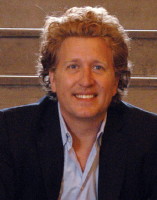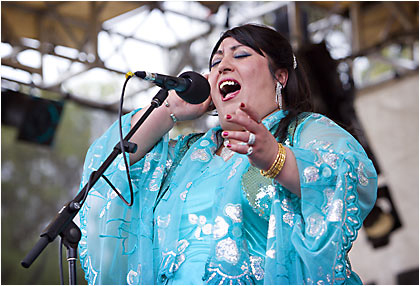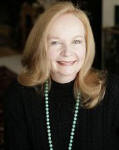Special Reports
Case Study: Hiring Artists from the Arab World

University Musical Society
Organization: Based in Ann Arbor, MI, UMS is one of the oldest performing arts presenters in the country, now in its 134th season. UMS rents performing facilities at the University of Michgan, but it is a separate organization with its own board and budget.
 Size and scope: Typically 65-75 performances involving 45 different presentations each season,
Size and scope: Typically 65-75 performances involving 45 different presentations each season,
about half from abroad.
Visa challenge: Over the last decade, at roughly two-year intervals, UMS has based part of its programming on culture from a non-European part of the globe, according to Michael J. Kondziolka, director of programming for the last 18 years. “We have focused on Africa, on South America, on Asia very broadly defined, and on the 22 countries that self-identify as the Arab world,” he says.
 Close calls: Among UMS’s toughest hurdles was the 2008–09 Arab-themed season, when a singer and group called Farida and the Iraqi Maqam Ensemble were scheduled to appear. “They were living in Amsterdam as exiles from Baghdad,” recalls Kondziolka.
Close calls: Among UMS’s toughest hurdles was the 2008–09 Arab-themed season, when a singer and group called Farida and the Iraqi Maqam Ensemble were scheduled to appear. “They were living in Amsterdam as exiles from Baghdad,” recalls Kondziolka.
“They had lost all of their national status. I mean, they didn’t even have passports. I just looked at everyone and said, “Well. How are we going to do this?’”
The effort prevailed, he says, “But I spent a lot of time on that one.”
Another case that same season was not so lucky: An ensemble of Fez musicians managed to make it, “but a few of its members had to stay behind,” says Kondziolka.
Mission impact: “We have never allowed potential visa problems to impact our decision making,” says Kondziolka. “The visa challenge is just another element imposed onto the situation of producing important cultural exchange.”
Their process: Each summer, Kondziolka sits down with his programming and production teams to analyze the upcoming season for specific responsibilities and risks. His associate programming manager Liz Stover then works with outside attorney Jonathan Ginsberg at Fettmann, Tolchin & Majors to assemble the visa petitions, file them, and stay on track. “We’re in a privileged position,” says Kondziolka, “in that I can put a budget together that accounts for expert legal advice and administration in doing this work. A lot of my colleagues do it themselves.”
Recent visa activity: Three groups of performers needed UMS to initiate their visa applications for 2012–13: The Suzhou Kun Opera Theater of Jiangsu Province (which practices a 600-year-old form of Chinese opera); Propeller, a highly physical, all-male Shakespeare company from the U.K.; and a relatively new British company called 1927, whose show UMS describes as a “wickedly twisted” tale with live performers, film, and animation.
Recommendations: Kondziolka said he has never had a visa petition fall apart completely, but that it is prudent to consider the possibility: “I have begun to change the language in some contracts to address how we will deal with outlaid expenses, and what are the terms under which we can walk away, so that it is clear to everyone.”
Kondziolka also warned that busy ensembles reporting to consulates in large urban capitals need to allow plenty of lead time in setting up their interviews. “The backlog on getting people in can sometimes prohibit an entire company from getting into the country,” he says.
Still, he has noticed some visa procedures improving: “When the Royal Shakespeare Company came in, the U.S. consulate in London experimented with going to the group for the interviews. They went up to Stratford and interviewed everybody there.” A few actors did not make the cut, but overall the headaches and travel costs were eased for many artists. “I thought it was a very interesting approach,” says Kondziolka. “The regulations are what they are. But I think the officials involved have been trying to make things as efficient as humanly possible, or at least to listen to our industry’s concerns.”
Helping Presenters in their Visa Crises

Nancy Malitz has been writing about the intersection of the arts and technology for most of her career. She developed some of Gannett Media’s first newspaper web sites and worked on strategic projects formedia change.





 FEATURED JOBS
FEATURED JOBS

 RENT A PHOTO
RENT A PHOTO


